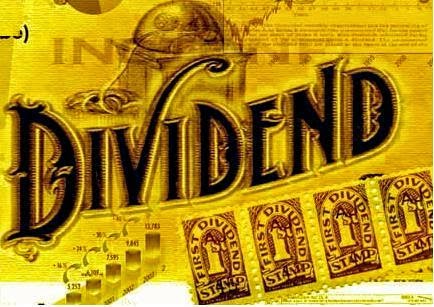Factors Affecting Dividend Policy

What are the factors affecting dividend policy? Why do some companies pay out most or nearly all their earnings in dividends (like AT&T - dividend payout ratio of around 80%) while others (like Amazon) don't pay anything out at all?
This article examines the various factors affecting dividend policy.
Who decides the dividend policy?
The board of directors are appointed by shareholders to decide on the running of the company and the dividend policy. The board of directors have a fiduciary duty to act in shareholder interests as they are effectively the trustees of the company for the shareholders.
The board of directors have to weigh up what to do with the profits and cash that are being generated by the business. There are always twin pressures of rewards today or greater rewards in the future.
Ultimately, a business that retains more cash in the business should make greater profits in the future. Think about it this way, if you just handed me $100 million then I could add $1.75 million of earnings per year every year for the next ten years without taking any risk. All I'd have to do is buy the 10 year treasury (government bond).
The board of directors have frequent board meetings where, among other things, they will determine the dividend policy of the company. Factors affecting dividend policy are varied and we look at what may influence the board's decision on dividend policy below:
Factors affecting dividend policy:
1) The balance sheet and capitalization.
They need to think about how much debt they are carrying and whether it is easily serviceable. The company firstly needs to ensure there is sufficient working capital (current assets - current liabilities) and liquidity in the business to keep it running in the short run. After that, they may need to think about long term liabilities and debt repayments and how these will be funded when the come due. Will they pay off the debt or will they look to refinance it? Does the company have easy access to capital markets for both debt and equity?
Some companies may also carry too much equity. This means they are overcapitalised for the business they are operating and could improve their return on equity by lowering the amount of equity they carry. They can reduce the equity by paying special dividends or carrying out a share buyback.
2) The stability of earnings.
This is particularly important in cyclical industries. If earnings are likely to be very volatile then the company may wish to retain a larger percentage of earnings in the good years so they can continue to make dividend payments (and other investments) in the leaner years.
3) Rate of return on retained earnings
This is very important as the earnings of the company belong to the shareholder and not to the board.
If you own 1,000 shares in a ABC company that has EPS (earnings per share) of $8 then you have effectively earned $8,000 that year. This is your money!
If the board decide not to pay this out then $8,000 of your money is being reinvested into the company on your behalf. If the rate of return on the retained earnings was 30%, then you would earn $10.40 per share the following year.
You would almost certainly accept this as a shareholder as you'd do very well to achieve this with the money yourself (particularly after tax and frictional costs). If, however, they only earned $8.04 the following year then you may question why they didn't pay out the earnings to you.
4) Expected capital expenditure
This is somewhat linked to the rate of return on retained earnings as the return on this capital expenditure is important to you. It is important to distinguish between maintenance capital expenditure and expansionary capital expenditure.
Maintenance capital expenditure is cash spent on current long term assets such as equipment, machinery, or property, where as expansionary capital expenditure is cash spent on new long term assets.
Some businesses (such as utilities or railroads) are very capital intensive which means they need to spend a lot of their earnings on maintenance capital expenditure. If this is not spent then there is a risk their assets will become unusable and more inefficient meaning future earnings will get hurt. This is why we prefer to buy shares in asset light companies as, all other things being equal, there should be more free cash-flow for shareholders.
5) Legal obligations
Some companies such as real estate investment trusts (REITS) receive tax incentives to distribute at least 90% of their earnings to shareholders. It often wouldn't make financial sense for them not to hit this payout ratio. Other businesses, such as banks, sometimes need to receive regulatory clearance to make shareholder payouts.
6) Dividend payouts or stock buybacks
Factors affecting dividend policy are not limited to the needs of the business. The board also need to weigh up how they will return cash to shareholders. We assess whether dividends are preferable to share repurchases in our article on share buybacks.
7) Tax
This obviously can vary depending on the shareholders but many shareholders may prefer a lower payout ratio in order to reduce their tax liability on the dividend income. This is particularly true if the rate of capital gains tax is lower than the dividend tax rate.
As you can see, there are many possible factors affecting dividend policy and we've highlighted a few above. You can get more thoughts on dividend policy at www.efinancemanagement.com/dividend-decisions/determinants-of-a-dividend-policy
Got a BURNING dividend question for 6-figure dividend earner Mike Roberts?
What is it that you really want to know about investing?
Submit a query and Mike will write a page in response.
PLEASE NOTE - in accordance with our terms of use, responses are meant for education / interest only. We do not give specific financial advice.



